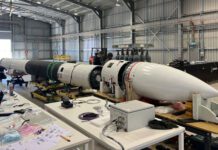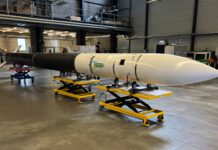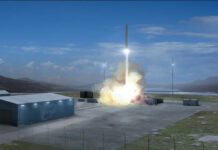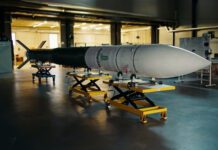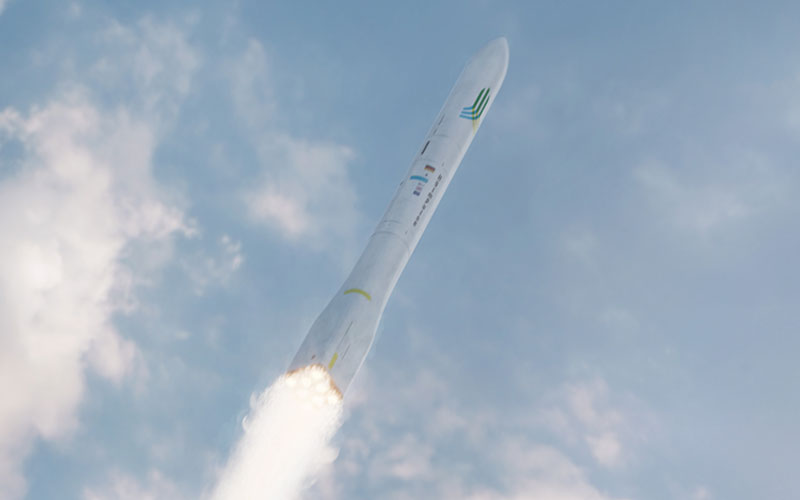
German launch startup HyImpulse has released an updated design of its SL1 rocket, which features a 20% performance boost over its previous iteration.
When it was first announced, the three-stage SL1 rocket was expected to be 27 metres tall, with a traditional tube-shaped profile and a black livery. It was designed to carry payloads of up to 500 kilograms to low Earth orbit.
The new design now has the rocket reaching 33 metres in height with a squared-off aft section that will better accommodate the first stage hybrid rocket motor cluster. The rocket’s HyPLOX 75 motors, which will power its first and second stages, have also received a performance upgrade, boosting the rocket’s payload capacity to 600 kilograms to low Earth orbit. The company has also officially added an optional kick stage to the SL1 offering.
HyImpulse revealed that it was working on a kick stage in a February 2023 journal article entitled Avionics for HyMOVE, A Modular Orbital Transportation System for Small Satellites. According to the article, HyMOVE (Hybrid Multipurpose Orbital Vehicle) would feature modular architecture, allowing it to be adapted to a diverse set of mission scopes. Like the other three stages of the rocket, HyMOVE will utilize a hybrid propulsion system. However, the exact nature of that propulsion system was not yet confirmed at the time the paper was published.
Apart from the new squared-off aft section, the most noticeable update is the rocket’s livery, which has gone from black to white. The SL1’s livery also now features the addition of the Union Jack underneath the German flag to acknowledge the company’s significant presence in the United Kingdom.

